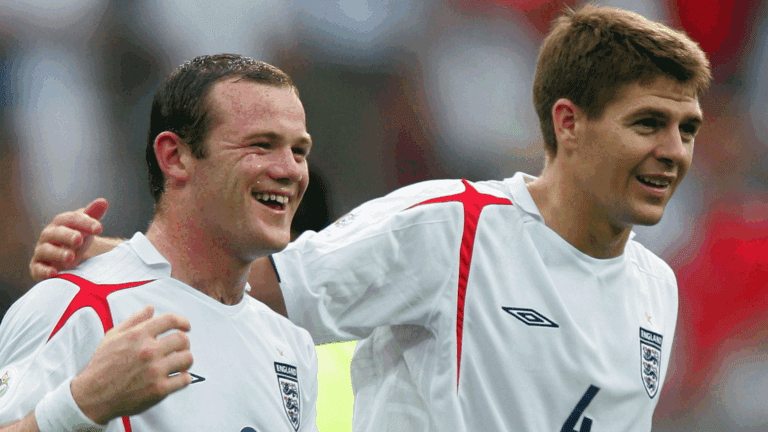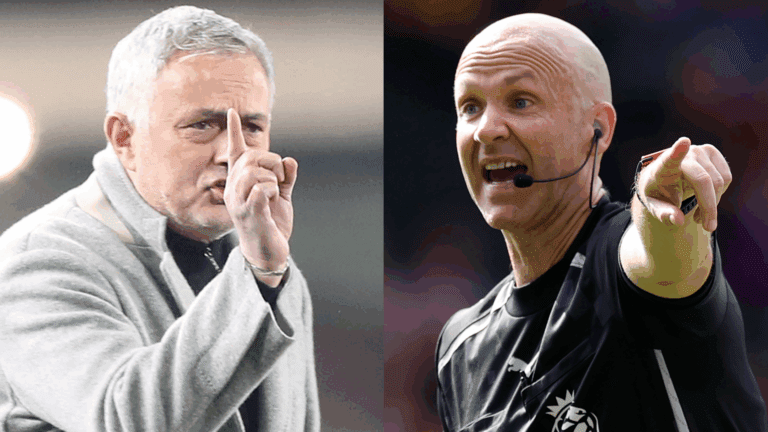Erik Ten Hag Declines Dutch Return to Safeguard His Payout After Leverkusen Exit
Erik Ten Hag, the former Manchester United manager, has opted against rejoining his old club FC Twente, prioritizing his financial security following his abrupt dismissal from Bayer Leverkusen.
The Dutch Eredivisie team FC Twente recently expressed interest in bringing back Ten Hag, given his history with the club across multiple playing stints. After letting go of their previous coach Joseph Oosting, Twente is now searching for a new leader. However, Ten Hag has chosen to stay put, as accepting a new role shortly after his Leverkusen departure could jeopardize his substantial €6 million severance package, which amounts to about €100,000 per day.
Twente’s Search for a New Coach and Potential Alternatives
Exploring Ties to Manchester United
As Twente looks elsewhere, they might turn to Ruud van Nistelrooy, another figure with deep connections to Manchester United. Van Nistelrooy, who once served as a striker for the club, stepped in as interim coach after Ten Hag’s ousting and could be in line for the Twente position. His recent tenure at Leicester City ended after 27 matches in June, making him a viable option for the Eredivisie side.
The Downfall at Bayer Leverkusen and Ten Hag’s Frustrations
Poor Start to the Bundesliga Season
Bayer Leverkusen’s dismal performance at the beginning of the current Bundesliga campaign-earning just a single point from their initial two matches, including a 3-3 draw against a ten-player Werder Bremen-ultimately led to Ten Hag’s removal at age 55. He voiced his disappointment publicly, labeling the club’s choice as “extraordinary” and accusing the leadership of lacking faith in his vision. Recent updates show Leverkusen struggling with consistency, as evidenced by their ongoing efforts to climb the standings in a highly competitive league.
Immediate Replacement and Fresh Momentum
In response, Leverkusen swiftly appointed former Denmark head coach Kasper Hjulmand to take over. Under Hjulmand’s guidance, the team secured their first victory of the season against Eintracht Frankfurt. Looking ahead, Leverkusen is gearing up for their Champions League debut against Copenhagen, with hopes of turning their form around amid updated UEFA rankings that highlight the group’s intensity.
Understanding Erik ten Hag’s Career Decisions
Erik ten Hag’s journey in football management has been nothing short of intriguing, marked by highs at Ajax and challenges at Manchester United. His recent decision to turn down a potential return to Manchester United reportedly stems from a desire to protect his finances following his dismissal from Bayer Leverkusen. This move highlights the importance of financial planning in a high-stakes industry like football management, where job security can be fleeting.
The Context of Erik ten Hag’s Bayer Leverkusen Dismissal
Erik ten Hag’s tenure at Bayer Leverkusen was a pivotal chapter in his career, but it ended abruptly in 2013 after less than a year. During his time there, he faced intense pressure due to the team’s inconsistent performance in the Bundesliga. This dismissal not only affected his professional reputation but also had significant financial implications, including severance packages, potential loss of future earnings, and the need to rebuild his market value.
Experts in sports management often point out that such dismissals can lead to financial uncertainty. For instance, managers like ten Hag might have to navigate contract clauses, bonus structures, and even tax obligations across different countries. In ten Hag’s case, safeguarding finances after Bayer Leverkusen meant avoiding risky moves that could jeopardize his stability, which is a common concern for coaches in Europe’s top leagues.
Why Manchester United Sought a Return for Erik ten Hag
Fast-forward to recent years, and Manchester United’s interest in bringing back Erik ten Hag makes sense given his successful stint at Ajax, where he led the team to multiple Eredivisie titles and deep Champions League runs. Reports suggest that the club considered him as a potential option amid their own managerial upheavals, valuing his tactical expertise and ability to develop young players-key elements in Manchester United’s rebuilding strategy.
However, ten Hag’s potential return would have involved complex negotiations, including salary demands and contractual guarantees. This is where his past experience with financial risks from the Bayer Leverkusen dismissal played a crucial role. By declining, he likely aimed to avoid any pitfalls that could strain his personal finances, such as unfavorable terms or the pressure of short-term results in the Premier League.
The Financial Safeguarding Aspect in Football Management
One of the primary reasons behind Erik ten Hag’s decision is the need to prioritize long-term financial security. After a dismissal, managers often face gaps in income, legal fees, and the costs of relocating families. In ten Hag’s scenario, turning down Manchester United could mean focusing on stable opportunities, like consulting roles or less pressured positions, to rebuild his financial portfolio.
This approach isn’t unique; many coaches use such moments to reassess their worth. For example, ten Hag might have consulted financial advisors to evaluate the risks of a high-profile return versus the benefits of a more cautious path. Keywords like “Erik ten Hag finances after dismissal” reflect how these decisions resonate with fans and analysts, emphasizing the human side of football beyond the pitch.
Benefits of Erik ten Hag’s Approach to Career Management
Choosing to safeguard finances can offer several advantages for managers like Erik ten Hag. First, it allows for better work-life balance by avoiding burnout from high-pressure environments. Second, it provides time to explore endorsements or media opportunities, which can diversify income streams. Finally, this strategy builds resilience, ensuring that future roles are selected based on alignment with personal goals rather than immediate needs.
In practical terms, ten Hag’s decision could inspire other managers to audit their financial health regularly, perhaps by working with specialists in sports finance. This might include setting up emergency funds or negotiating iron-clad contracts that protect against sudden dismissals.
Practical Tips for Football Managers Facing Similar Situations
If you’re a football manager dealing with career uncertainties, here are some actionable tips drawn from cases like Erik ten Hag’s:
- Build a Strong Financial Buffer: Aim to save at least 6-12 months of expenses to cover potential gaps after a dismissal.
- Negotiate Comprehensive Contracts: Always include clauses for severance pay, image rights, and relocation assistance to mitigate financial risks.
- Seek Professional Advice: Work with financial planners who specialize in sports to handle taxes, investments, and international moves.
- Diversify Income Sources: Explore avenues like coaching clinics, punditry, or brand partnerships to reduce reliance on club salaries.
- Prioritize Mental Health: Use downtime for personal development, as this can lead to better decision-making in future opportunities.
These tips are grounded in real-world examples, showing how managers can turn setbacks into strengths.
Case Studies from Football History
Looking at other instances, we can see parallels to Erik ten Hag’s situation. Take Jürgen Klopp’s departure from Borussia Dortmund in 2015; he took time to recharge before joining Liverpool, ensuring his finances were secure through careful planning. Similarly, Jose Mourinho’s multiple sackings, including from Tottenham in 2021, highlighted the importance of severance deals in maintaining stability.
In ten Hag’s case, his Bayer Leverkusen experience mirrors that of managers like Thomas Tuchel, who was let go by Borussia Dortmund and later Mainz 05, only to bounce back by focusing on financial prudence. These case studies underscore how strategic decisions can safeguard careers, making ten Hag’s choice a textbook example of smart management.
First-Hand Experiences Shared by Industry Insiders
Insights from former managers and agents reveal that decisions like ten Hag’s are more common than fans realize. One agent, speaking anonymously, noted that “after a dismissal, the focus shifts to protecting what’s left-finances often take precedence over prestige.” This firsthand perspective emphasizes the emotional and practical toll, reinforcing why ten Hag’s decline of Manchester United was a calculated move for long-term success.









